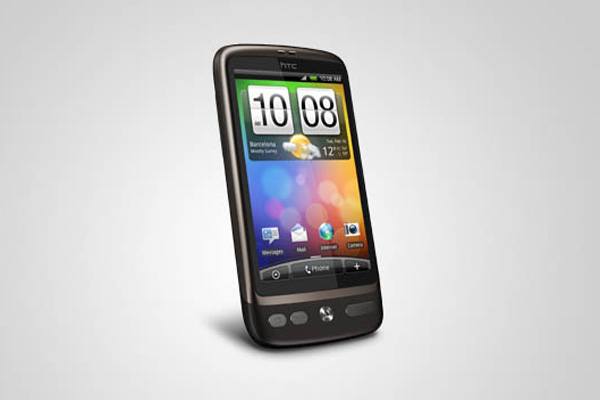HTC Desire review
We review the HTC Desire to see if it builds on Android's already solid foundation and has something to entice business users as well as consumers.

A powerful device whose large screen is particularly well suited to media rich activities. HTC’s Sense user interface adds extra pizzazz to Android, and the operating system is fast becoming very business-relevant while still retaining a lot of consumer-focused positives. Battery life is a potential problem, though, and it could be an issue with Android for some time to come.

The HTC Desire is the follow-up to the very well-received HTC Legend. The two smartphones are similar in many respects, but the HTC Desire has a more powerful processor and a larger screen, making it potentially more appropriate for business users who find themselves staring at the display more often than not to respond to emails and suchlike.
The HTC Desire sports a 1GHz processor, rather than the 600MHz offering in the HTC Legend. The more powerful processor means the device is better able to run applications faster. This means not only working more quickly within individual apps, for example, responding to screen taps and saving photos to an SD card more quickly, but also running multiple applications at the same time with more speed. During testing we did not experience any of the white screen wait' situations that we do with our workaday HTC Hero, for example.
The screen is one of the real plus points of the HTC Desire. At 3.7in it is one of the largest on any smartphone, and its 480 x 800 pixels mean it can display plenty of information. Its AMOLED technology makes it pin-sharp and bright in most situations. We did find it faded away in bright outdoor sunshine, but that is not a situation unique to this device.
The size and high definition of the screen come into their own when you carry out tasks that require a lot of detail such as reading emails or browsing the web. As we've come to expect from Android handsets you can pinch to zoom into web pages, or alternatively simply double tap on the screen.
Get the ITPro daily newsletter
Sign up today and you will receive a free copy of our Future Focus 2025 report - the leading guidance on AI, cybersecurity and other IT challenges as per 700+ senior executives

Sandra Vogel is a freelance journalist with decades of experience in long-form and explainer content, research papers, case studies, white papers, blogs, books, and hardware reviews. She has contributed to ZDNet, national newspapers and many of the best known technology web sites.
At ITPro, Sandra has contributed articles on artificial intelligence (AI), measures that can be taken to cope with inflation, the telecoms industry, risk management, and C-suite strategies. In the past, Sandra also contributed handset reviews for ITPro and has written for the brand for more than 13 years in total.
-
 Westcon-Comstor and Vectra AI launch brace of new channel initiatives
Westcon-Comstor and Vectra AI launch brace of new channel initiativesNews Westcon-Comstor and Vectra AI have announced the launch of two new channel growth initiatives focused on the managed security service provider (MSSP) space and AWS Marketplace.
By Daniel Todd Published
-
 Third time lucky? Microsoft finally begins roll-out of controversial Recall feature
Third time lucky? Microsoft finally begins roll-out of controversial Recall featureNews The Windows Recall feature has been plagued by setbacks and backlash from security professionals
By Emma Woollacott Published
-
 The UK government wants quantum technology out of the lab and in the hands of enterprises
The UK government wants quantum technology out of the lab and in the hands of enterprisesNews The UK government has unveiled plans to invest £121 million in quantum computing projects in an effort to drive real-world applications and adoption rates.
By Emma Woollacott Published